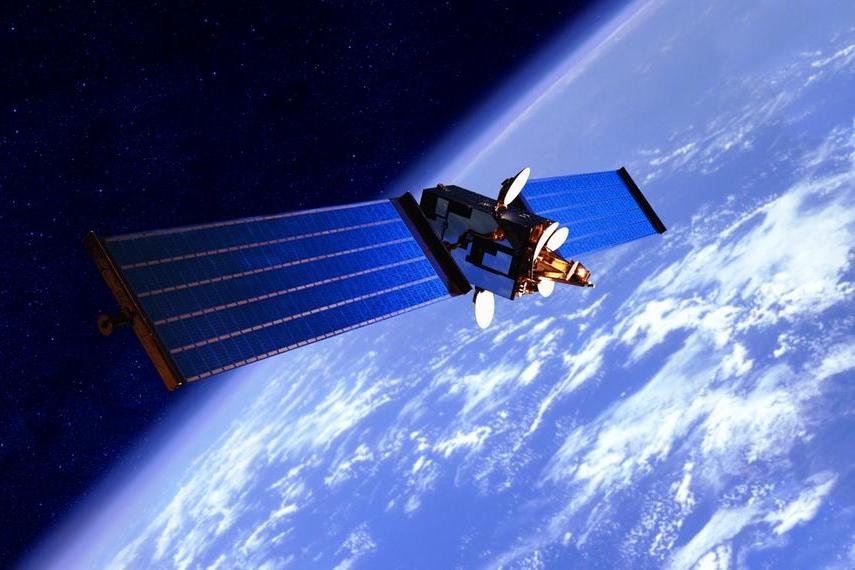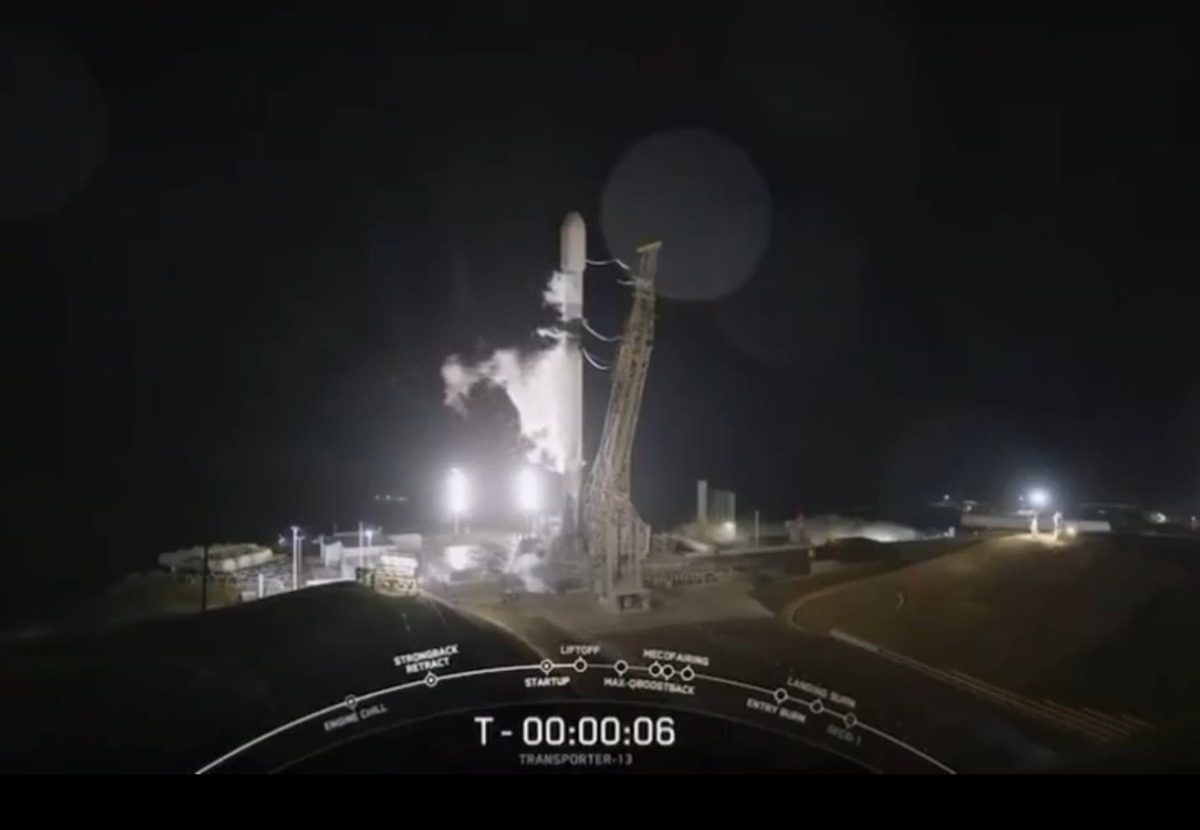Manama, Bahrain – In a historic milestone for Bahrain’s space ambitions, the kingdom has successfully launched its first domestically designed and developed satellite, named Al Munther. This achievement signifies a major step forward for Bahrain’s growing space sector and its commitment to advancing scientific research, technology, and innovation.
The launch took place on March 15, 2025, at 9:39 a.m. Bahrain time (06:39 GMT), from Vandenberg Space Force Base in California, USA. Al Munther was carried into orbit aboard a SpaceX Falcon 9 rocket as part of the Transporter-13 mission. The satellite was successfully deployed into its designated sun-synchronous orbit at an altitude of approximately 550 kilometers above sea level. It is expected to remain operational for at least two years, during which it will conduct various scientific and observational tasks.
A Technological Breakthrough for Bahrain

Al Munther represents a groundbreaking advancement for Bahrain in the field of satellite technology. It is a 3U CubeSat, a small but sophisticated satellite, incorporating cutting-edge artificial intelligence (AI) capabilities for onboard image processing. This AI-powered system allows for real-time analysis of images and data captured from space, significantly improving efficiency and accuracy in remote sensing operations.
Equipped with several high-tech payloads, Al Munther is designed to perform critical functions, including Earth observation, environmental monitoring, and cybersecurity operations. Some of its key features include:
- Earth Observation Camera: A medium-resolution space camera capable of capturing images with a resolution of 20 meters per pixel. This will be instrumental in monitoring Bahrain’s land, territorial waters, and surrounding environment, helping in urban planning, disaster response, and climate research.
- Cybersecurity System: Advanced encryption technologies have been integrated into the satellite to ensure data security. This system will protect sensitive information from cyber threats and unauthorized access, enhancing the safety and integrity of the satellite’s operations.
- Broadcast Function: One of the unique features of Al Munther is its ability to transmit Bahrain’s national anthem and a special recorded message from His Majesty King Hamad bin Isa Al Khalifa. This function will allow radio enthusiasts and satellite communication experts worldwide to receive and decode these transmissions, symbolizing Bahrain’s presence in space.
The Meaning Behind the Name “Al Munther”
The name “Al Munther,” which translates to “herald” or “messenger” in Arabic, reflects Bahrain’s aspirations to become a key player in the global space industry. It signifies the country’s dedication to scientific progress and its mission to expand its capabilities in space research and exploration. The satellite’s launch is not just a technical achievement but also a statement of Bahrain’s commitment to inspiring future generations to pursue careers in space technology, engineering, and innovation.
Development and Local Expertise
Al Munther’s development was spearheaded by the National Space Science Agency (NSSA), with contributions from a team of highly skilled Bahraini engineers and researchers. The project provided an invaluable learning experience for these professionals, covering all aspects of satellite design, software development, testing, and integration.
From conceptualization to execution, the development process of Al Munther took several years. Engineers worked meticulously on designing the satellite’s hardware and software systems, ensuring they met international space standards. Extensive environmental testing was conducted to verify the satellite’s resilience against the harsh conditions of space, including extreme temperatures, radiation, and microgravity.
The successful completion of this project highlights Bahrain’s ability to independently develop sophisticated space technologies. It also paves the way for future collaborations with international space agencies and organizations.
Statements from Bahraini Officials
Dr. Mohammed Ibrahim Al-Aseeri, Chief Executive Officer of NSSA, described the launch as a historic moment for Bahrain. He stated, “The successful deployment of Al Munther represents an unprecedented milestone in Bahrain’s scientific and technological journey. This achievement is the result of years of dedication, research, and hard work by our talented engineers and scientists. It marks the beginning of Bahrain’s active participation in space exploration and opens doors for new opportunities in the field.”
He further emphasized the government’s strong support for scientific initiatives, crediting the visionary leadership of His Majesty King Hamad bin Isa Al Khalifa and His Royal Highness Prince Salman bin Hamad Al Khalifa, the Crown Prince and Prime Minister, for fostering a culture of innovation and excellence.
Impact and Future Prospects
The launch of Al Munther is expected to have far-reaching implications for Bahrain’s technological and scientific landscape. The satellite’s real-time data collection will benefit multiple sectors, including environmental conservation, agriculture, urban planning, and security.
- Environmental Monitoring: By analyzing satellite imagery, experts can assess climate changes, air pollution levels, and deforestation. This will help Bahrain implement effective environmental policies and sustainability initiatives.
- Urban and Infrastructure Planning: The high-resolution images captured by Al Munther will aid in urban development projects, traffic management, and land-use planning. Authorities will be able to make informed decisions based on accurate spatial data.
- Disaster Management: In the event of natural disasters such as floods or oil spills, satellite data will provide crucial information for emergency response teams, helping them strategize relief operations more efficiently.
- Education and Research: Al Munther serves as an inspiration for young scientists and students interested in space science. The NSSA plans to collaborate with universities and research institutions to use the satellite’s data for academic purposes.
Bahrain’s Growing Space Ambitions
Bahrain’s entry into the space industry aligns with the broader vision of the Gulf Cooperation Council (GCC) nations, many of which have been investing in space technologies. The United Arab Emirates has already made significant strides in space exploration with its Mars mission and astronaut program. Saudi Arabia and Kuwait have also announced ambitious space initiatives. With the successful launch of Al Munther, Bahrain now joins the ranks of these pioneering nations, reinforcing its commitment to innovation and scientific progress.
Looking ahead, Bahrain plans to expand its space program with more satellite launches and increased collaborations with international space agencies. The NSSA has indicated that future missions will focus on developing advanced remote sensing satellites, communication technologies, and space research initiatives.
Conclusion
The successful launch of Bahrain’s first locally developed satellite, Al Munther, marks a significant milestone in the nation’s history. It is a testament to the country’s dedication to technological innovation and scientific progress. As Bahrain continues to develop its space sector, the knowledge and experience gained from this mission will serve as a foundation for future advancements.
With Al Munther now in orbit, Bahrain has officially made its mark in the global space industry. This achievement not only enhances the nation’s reputation but also inspires the next generation of Bahraini scientists, engineers, and space enthusiasts to dream big and reach for the stars.
APM Terminals and Bahrain Ink Pact to Transform Khalifa Bin Salman Port



